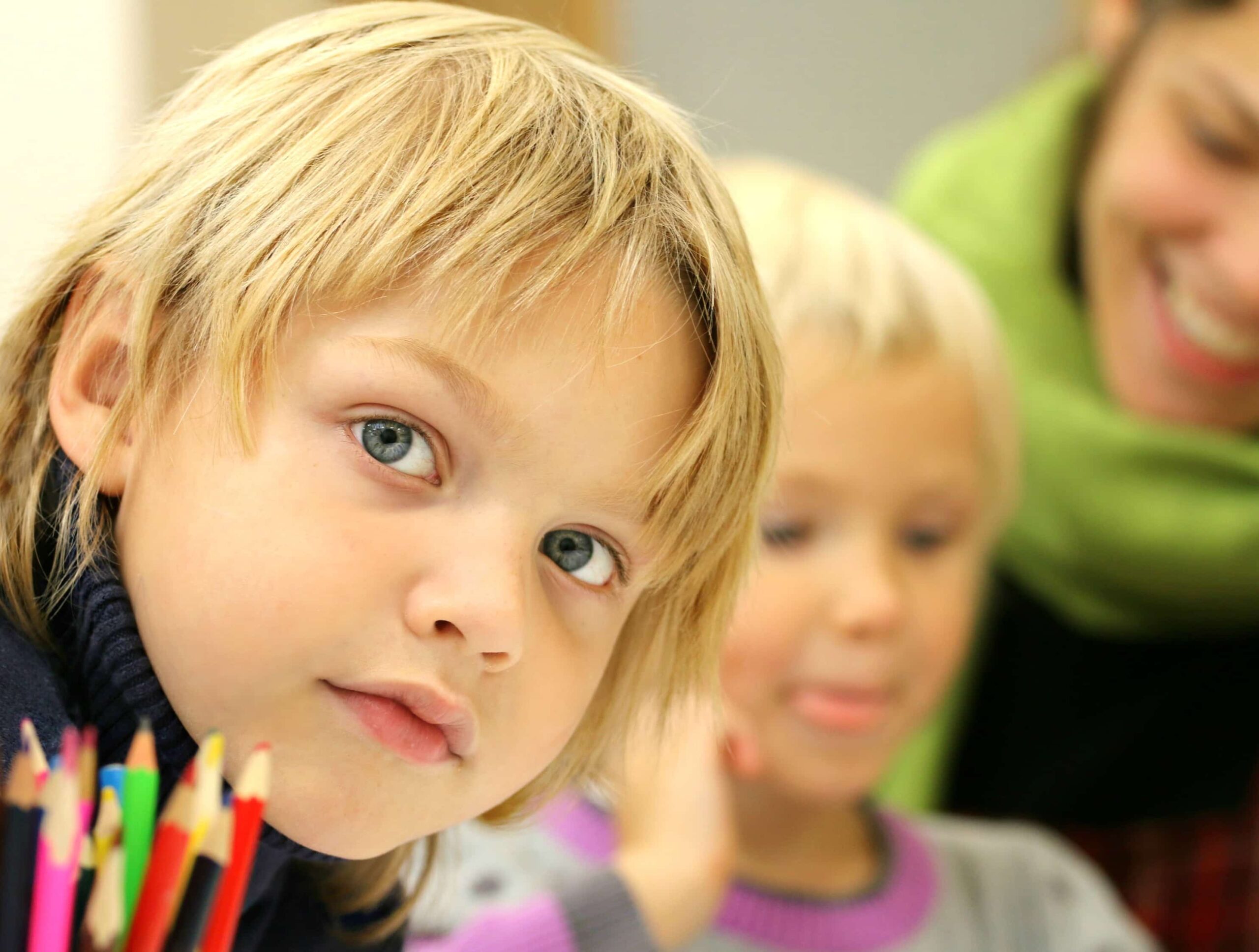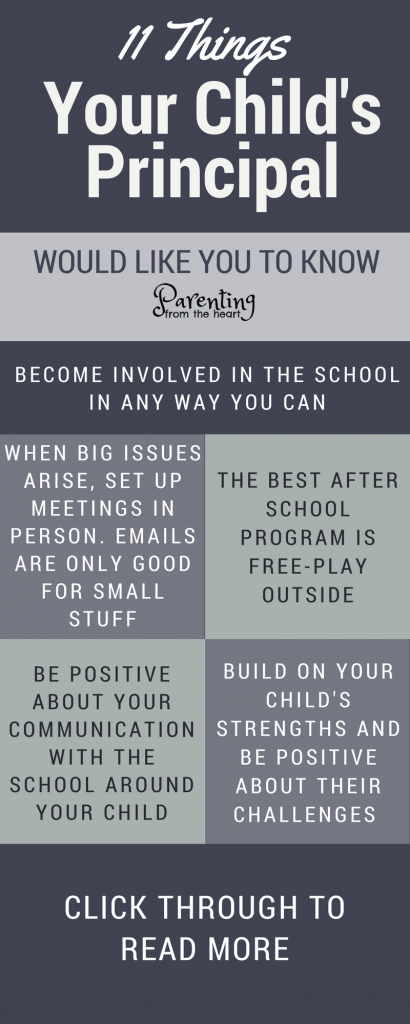What would your child’s school principal tell you if they could say anything? Read 11 insights from a school principal with over 40 years experience below.
I just sent my first-born to preschool! In wanting to set her up for success, I’m leaning into my mom’s wealth of educational knowledge more than ever before. Her philosophies on early childhood, lessons from teachers’ training, research read, and experiences were woven into how she raised me and my brothers. Still, it has been nice to pick her brain to understand more concretely what she believes and why.
With nearly 40 years of experience as a teacher, school principal, and now university professor, she is no slouch when it comes to information and educational insight. While I admire so much about my dear mommy, the part of her professional prowess I love the most is her love for anyone with special needs. Whether the special needs of a particular student are circumstantial, developmental, learning related (whether they are gifted or have a learning disability), my mom has always been especially drawn to each child because of her uniqueness.
Recently, I asked her if she could share with me some of the things your child’s school principal would love every parent to know.
10 Things Your Child’s School Principal Would Like You To Know
1. Become involved in the life of the school in any way you can.
The school understands parents have demanding schedules, but just a little bit of time spent in the school can go a long way. Whether it’s to drive for a field trip or attend the PTA/ PAC, schools with involved parents are vibrant and enriched communities. Not only does this make a difference to the school, it is very beneficial to your child as well.
2. Respect the teachers and the role they have in your child’s life.
We take the idea the notion, “It takes a village to raise a child.” We want to work collaboratively to create the best outcomes for each student.
3. Make sure you are positive about your communication about school with your child.
Find out what the focus of the class is and support the learning by going to the library and enriching the topics through conversation and fun. (Alana’s personal side note: I had some amazing teachers, some good teachers and some teachers I could have done without. In the situation where my teachers were less than good, my mom never added fuel to the fire when I complained, she simply encouraged my own problem-solving and spoke to the school without me really knowing what was going on. This, I’m fairly sure, kept me from starting a full-blown mutiny in the classroom with my friends).
4. Let your school know about important changes in your child’s life.
Understanding there has been a separation of a child’s parents, the birth of a new baby, a move, or the death of a loved one or pet can help us better understand a student that may be acting out of character. Having the context for what is happening outside of the school only helps us better assist your child and his teacher.
5. Build on your child’s strengths and be positive about any challenges they are facing.
If your child is particularly adept at something, encourage her in this area. The confidence she feels as a result of her abilities creates a spill-over effect for areas they may struggle in. In turn, speaking favourably about efforts in the subjects they struggle in can act as invaluable motivation.
6. If your child has any unique learning need or health concerns let the principal and teacher know.
You may want to minimize your child’s struggles or concerns you have about him. It is natural to want him to make the best impression possible. However, it is pertinent to be as upfront with the school as possible. If your child is struggling in some way, we can work to provide him with all of the appropriate support.
7. Email is great for small details but is not ideal for big issues.
If you have a concern, make an appointment and have a face-to-face meeting. Although email communication can be efficient, personal communication is more effective for problem-solving. Email is perfect for questions about supplies or homework. However, face-to-face is the best way to sort bigger problems. It leaves less to interpretation and can get resolution must faster and more efficiently.
8. Two of the best extracurricular activities for your child include lots of free play and reading.
Both help stimulate imaginations, promote literacy, increased vocabulary, and focus. In play, children practice skills like numeracy, increases problem-solving, cognitive-linguistic abilities, memory, and reasoning (read more here).
9. Have a regular routine and provide good nutrition for your child.
Although technology is an incredible tool, reduce screen time and increase green time. Make sure your child gets lots of outdoor play and physical activity. Outdoor play is great for overall health. In addition, it prompts new play ideas and can help regulate stress and other emotions.
10. Teach social responsibility and kindness.
Resist the natural inclination to solve your child’s problems. Let him learn through experiences. The only way to develop into a kind, mature, responsible person is to learn resiliency.
[bctt tweet=”If your child’s school principal could tell you anything, what would they say? #backtoschool #parenting” username=”parentfromheart”]













These are great tips!! I feel bad for teachers when parents think their child is a perfect angel!! Awesome for you to get the inside scoop on this!
Love this post! My mom was a teacher and principal as well and she definitely harped on these points!!
That’s so awesome! Thanks so much for reading, Emily ❤️
wonderful points!
Great points to know! Teachers and principals have tough jobs…they can use all the help from parents that they can get!
I watched your Periscope on this and really loved it! I have lots of friends who are teachers and think they would definitely agree, especially with the respecting the role the teachers play in your child’s life. I think it becomes difficult to teach, discipline and play the correct role when parents start trying to micro-manage and work against the teachers instead of with them!
Great post! Most we already follow but you brought a few things to my attention, thanks!
http://www.HometownQueenBee.blogspot.com
I wish we could have these as handouts when our children start school. This is so encouraging and positive. Can’t say enough how strongly I agree with the vibrant community that can be built from involvement. Wonderful words to start every school year!
I love this! It is so great hearing from people inside the school system since they can follow trends and see a version of our child that we dont get to see!
Great tips Alana. I’m clueless two as a first time mom with kids in preschool. Love the reduce screen time and increase green time!
We have had mostly good teachers but a few bad. I have just tried to be supportive and volunteer when I can. It doesn’t help to create a negative environment.
I feel like #11 is so hard for me! But I know she is absolutely right though.. Just mama’s instinct to step in, I suppose!
This is a great list! Number 7 sticks out to me the most because I can picture myself wanting to email instead. But I understand the importance of one on one.
These are great tips and food for thought.
This is great information for parents. I really like the point about having positive communication with the school.
LOVE!
Such a sweet post:) I love that you have an insiders perspective. Shared on twitter:)
#5 is very important. We have to remember to present all issues in a positive manner with suggested solutions because other wise teachers just see another needy parent coming their way!
This is a great list. Getting out and playing, reading and keeping the school in the loop are so important.
Great list!!! I swear communication with your kids teacher is key. It amazes me that so many parents never talk to their kiddos teachers.
This is great! My husband is an elementary school principal. I often hear these themes from him throughout the school year – especially #1, 9, and 11. These are great reminders as parents get ready for the start of the school year.
I totally agree with all of these! Teachers love when parents know these things too.
My son is having a hard time at Pre-K and I stumbled over this post! My mom was a self contained LD and BD teacher, taught Resource, then became a Principal. She passed away 6 years ago and I am constantly thinking of questions that I would LOVE to ask her. This post was like reading something from my mom! I appreciate you and your mother taking the time and effort to write this!